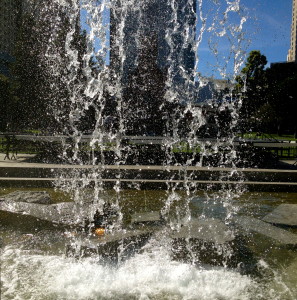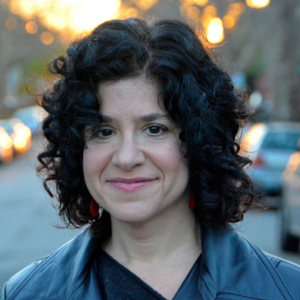“You are the Sultan.”
This is the point that Scheherazade made to her husband in the climax of One Thousand and One Nights. The Sultan had been lamenting the existence of a law that dictated that any woman he married must be put to death. Following 1001 nights of listening to his new bride tell stories, holding the death sentence in abeyance, he was having second thoughts about the rule he instituted years earlier in reaction to a painful betrayal.
That is, until Scheherazade reminded him that, as the Sultan, he not only had the authority to write the law, but also to repeal it.
Has your mind proposed hard and fast rules to protect you when your heart has been broken?
What helps you repeal those laws when they cause suffering to yourself or others?
These are three practices to consider:
1. Grieve.
When there is a betrayal, fear might quickly question whether it’s possible to feel safe again. Anger could sharply point out where limits have been violated. Sometimes, though, it’s not so easy to be with feelings of grief and loss.
When I need assistance to grieve, I seek a place that supports my intention and that connects my personal narrative to a larger social context.
 Last week, in the wake of yet one more story of racial violence, I visited the MLK Fountain at Yerba Buena Gardens in San Francisco.
Last week, in the wake of yet one more story of racial violence, I visited the MLK Fountain at Yerba Buena Gardens in San Francisco.
As soon as I saw MLK’s picture, the sobs came.
Inside the pavilion looking out, I imagined the man-made waterfall as my own tears washing some of the filters affecting my perception of the world, such as judgment, cynicism and doubt. The falling water helped my falling tears turn to sobs, their sound camouflaged inside the loud cascade.
I turned around and talked to the picture of Dr. King, hoping he could make sense of the senseless. I let the sting of the loss threaten to rip my heart to shreds. The pain eventually gave way to wonder as it hit me: What Dr. King and many since then stand for cannot die.
The benefit of feeling the wound is accessing the medicine.
2. Model a new way.
Contribute something you love that brings joy, adds beauty or relieves suffering.
The sound of the Native American transverse flute stirs my heart. Seven years of longing preceded the acquisition of a flute of my own. I am still new to playing this instrument. I get the basic notes and a few simple melodies. A few days ago, as I was playing in a community garden, two people approached me, admitting that they had long wanted to try but they “couldn’t do it.” I invited my thoughts of “I don’t know enough” and turned my attention to my love of the sweet, haunting music that comes through the flute. The love guided me to share what I knew. At the moment they found those basic notes, we both learned something new about ourselves. The surprise was delightful.
What do you love to do that brings joy and beauty or that relieves suffering?
3. Play.
Psychiatrist Stuart Brown suggests that depression is the opposite of play, not work, and that playfulness is related to adaptability. He also suggests that the basis of human trust is established through play signals.
Aside from being fun and restorative, one of the things I appreciate most about play is that it strengthens my problem-solving capacities. When I play, I see opportunity in challenge. To play, I have to be curious. To be curious, I have to listen from the heart. To listen from the heart, I have to get friendly with my critic. You know, the one that says, you can’t, you are too old, you are not creative, who are you to do this, you don’t have anything to offer, it’s always going to be like this, it’s never going to change. Through play, I have support to offset the discomfort of the unfamiliar and the discomfort of making mistakes so that I can discover what makes for skillful collaboration.
When you are a human being that judges and doubts and also makes space to be curious and care, you can respond to life’s challenges in a fresh way.
You are the Sultan.









wow, beautiful, annabelle. in the way that gandhi says that beauty is practical! this is very practical.
(hands on heart)
(gratitude)